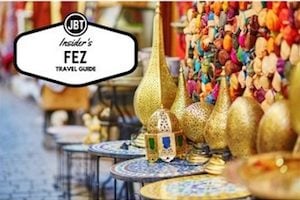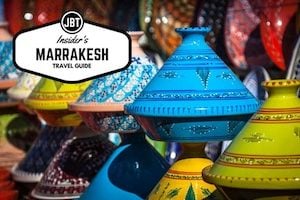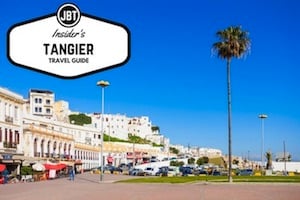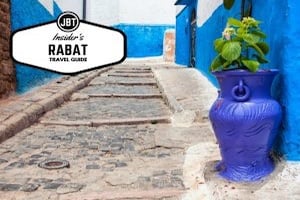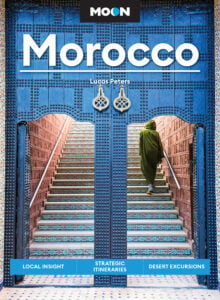 Moroccan sweets and cookies are a bit like the secret underdog of the patisserie world. They look quite unassuming and even a bit dull at first glance. However, all bets are off when you take a bite of their heavenly deliciousness.
Moroccan sweets and cookies are a bit like the secret underdog of the patisserie world. They look quite unassuming and even a bit dull at first glance. However, all bets are off when you take a bite of their heavenly deliciousness.
Many Moroccan sweets are drizzled with honey and stuffed with almond paste. Others use toasted, sweetened sesame – either ground into a paste and used as a filling or smothered on top. Cinnamon and caraway seeds are often used in Moroccan cookies while saffron threads, found in southern Morocco, found in others.
Sablé is a French word that is frequently heard throughout the cookie kingdom of Morocco. It means ‘shortbread biscuit,’ though literally translates to ‘sandy.’ Many cookies are shortbread-based. Those are generally a little less expensive while almond-based treats cost a bit more.
But enough of the small talk, let’s get down to the sweet business of Moroccan Sweets!
Moroccan Sweets & Cookies
Ghriba are lovely round hockey puck-like circles of delectability, modest in appearance, but the mouth-watering, buttery crumbles of sweet toasted sesame will most definitely win you over. Don’t let their humble look fool you. Get them with a touch of caraway seeds for that extra crunch. The perfect cookie companion on a cold winter day.
Shebakia is perhaps the most famous Moroccan sweet. Tiny stands dedicated to this honey-drizzled sweet are dotted all over medinas and on busy city streets. The shebakia is surprisingly basic: ground, sweetened sesame is first deep-fried and then twisted (almost like a pretzel) before being dipped into honey. It is particularly popular during the Islamic holiday of Ramadan.

F’kas are a long, almond-based biscotti biscuit. Like most biscottis, the almonds are lightly toasted before being introduced to the flour, butter and sugar. Unsurprisingly, these are patisserie perfect with a coffee or tea.
Briouates are sticky, deep-fried, triangular-shaped, honey-dipped, sinful pleasures. They are basically a thin pasty-dough that is packed with almond paste and orange blossom water for a distinctive Moroccan zest. A popular one with kids and parents alike.
The corne de gazelle is another crowd-pleaser. It is crescent-shaped, soft and delightfully delicate. Corne de gazelle translates to ‘gazelle’s horns’, as the shape of this cookie is distinctly curved, giving it a unique shape. This treasure is stuffed with almond paste along with a touch of orange blossom water. True cookie connoisseurs should search for corne de gazelle covered in toasted almond slices or stuffed with sweet, ground sesame with even more sesame seeds sprinkled on top.
The ma’amul might be the real Cookie King of Morocco. Dates have been part of Moroccan dessert culture for centuries and the ma’amul is the top-dog of the cookie here – a delicate, round ball of loveliness, lightly dusted with powdered sugar and stuffed with sweetened, ground dates.
The culture of Moroccan sweets is linked closely to sharing with friends and family. In essence, Moroccan cookies bring people together. Makes perfect sense in this country that is known for its incredibly warm, kind-hearted people.
It’s no secret that most Moroccans love sweets! Traditional Moroccan mint tea, generally heavily dosed with sugar, is often served alongside platters of these various cookies and treats, making an afternoon spent with friends an especially sweet experience.
When you head out shopping for sweets, seek out the neighborhood bakery and pasty shop instead of the cookies that are mass-produced and found in grocery stores and chain bakeries. These small businesses are the ones with the real charm and the fresh, tempting treats that reflect it. Luckily for us, sweets in Moroccan are reasonably priced. One can typically walk away from a pastry shop with a kilo of fresh cookies for about 120-150 dirhams, or about $12-$15, depending on where you are in Morocco. Even better, the vendor will usually give you a free cookie (or two) to taste – particularly if you have kids.
It’s typical for visitors to request Moroccan sweets to be packaged for travel as they make such popular and delicious gifts for friends and families back home. Vendors usually wrap them carefully so that they are well-protected, even for the plane ride home!
About the Author
 Tara Fraiture is a dual British-American national. She now lives in Morocco with her cat, three kids and husband. In her free time, Tara enjoys belly dancing (badly) and impersonating accents (she’s a whiz, much to her children’s delight). Tara has happily lived in Cameroon, Egypt, Senegal, El Salvador, and Qatar. After many years of teaching French and Spanish, this global nomad found her passion (or perhaps her demise) in freelance journalism and she has been furiously writing ever since. And as she puts it, “writing is cheaper than therapy.” Humor is part of her mantra, as well as finding stories with heart and human connection.
Tara Fraiture is a dual British-American national. She now lives in Morocco with her cat, three kids and husband. In her free time, Tara enjoys belly dancing (badly) and impersonating accents (she’s a whiz, much to her children’s delight). Tara has happily lived in Cameroon, Egypt, Senegal, El Salvador, and Qatar. After many years of teaching French and Spanish, this global nomad found her passion (or perhaps her demise) in freelance journalism and she has been furiously writing ever since. And as she puts it, “writing is cheaper than therapy.” Humor is part of her mantra, as well as finding stories with heart and human connection.

